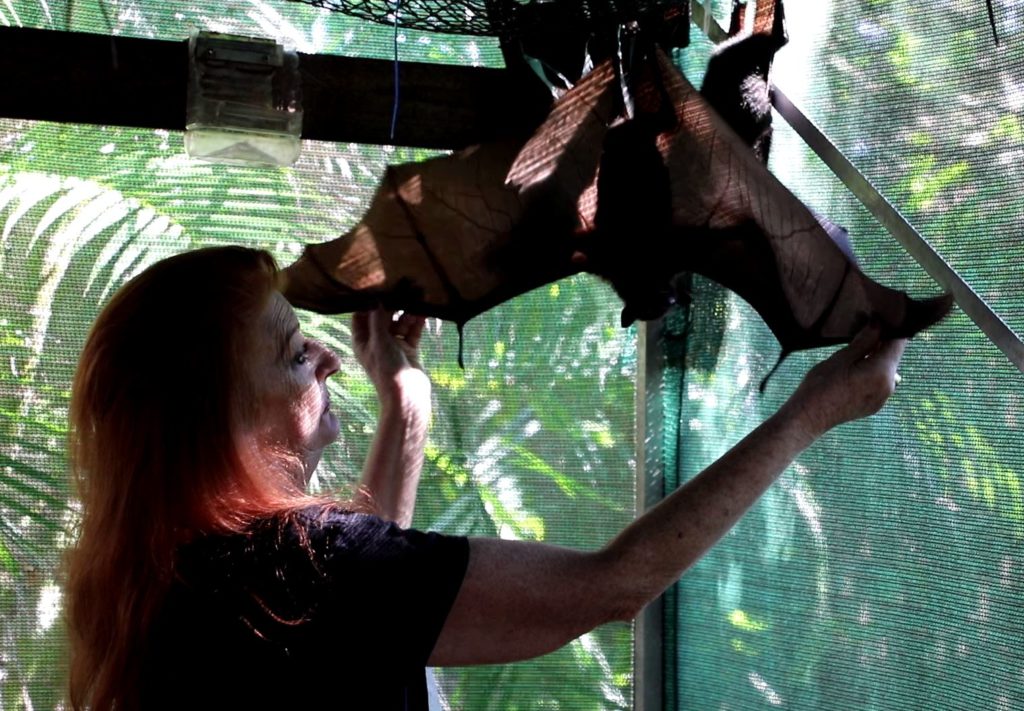
A Bundaberg Region wildlife carer says a flying-fox starvation event across South East Queensland is sending flocks of sick and dying creatures to her door.
The Queensland Government Department of Environment and Science has issued advice on the starvation event which extends from northern New South Wales to Gladstone.
Christine Wynne, who is also president of Queensland Wildlife Carers and Volunteers, said she had an influx of flying-foxes with more than 60 to care for.
“It’s full on with rescues … I’ve just got so many extra bats,” Christine said.
“The flying foxes are just roosting in people’s backyards.
“They’re hungry, they’re not even going back to the colony like they normally would.
“They’re just dropping dead, it’s really sad actually.”
Christine believes it’s a combination of drought conditions and recent bushfires that is causing the flying-fox starvation event.
“They come into the area and they’re already debilitated and starving.
“They’re so desperate [for food] that they’re coming down on to strawberry farms to eat strawberries which a bat would never normally do.
“They’re flying around in the middle of the day. They’re not doing the normal things that bats do.”
Flying-fox starvation event impacting threatened species
Most concerning for Christine is the appearance of sick grey-headed flying foxes which are already listed as a threatened species.
She now has quite a few in her care.
“I’ve never had them in this area before and I’ve been here for 30 years.”
If anyone sees a sick or struggling flying-fox, Christine is urging residents to call her.
“In Bundaberg I’m the main person that does flying foxes.”
In addition to the 60 in her care Christine has about 30 flying-foxes roosting in her backyard.
She’s lending them a helping hand by supplementing their food and is encouraging residents who have them in their yards to do the same.
“Give them a bit of a helping hand at the moment,” she said.
“A lot of people that have called me for information I’ve told them to hang little buckets of fruit out in the tree.”
She said there was no need to be concerned about flying-foxes provided residents didn’t touch them or get too close.
“You need to be bitten or scratched by a bat to get lyssavirus,” Christine said.
Despite their lack of popularity, Christine said flying-foxes were vital to the ecosystem.
“They’re extremely important pollinators,” she said.
“We need them, if we lose them we lose our trees.”
The Queensland Wildlife Carers and Volunteer Association can be contacted on 4159 6431 or 0439 502 228.







